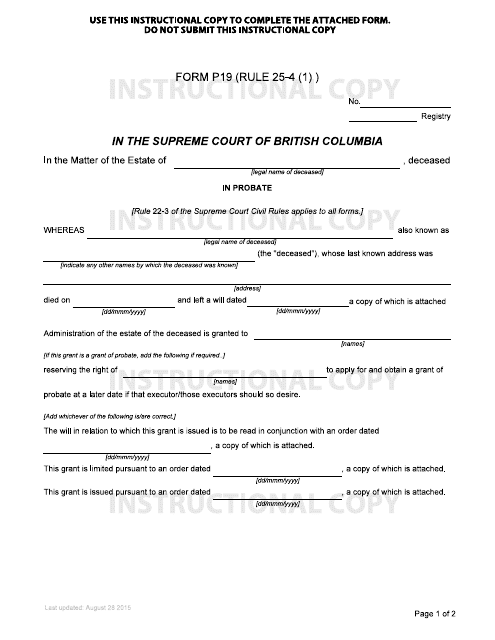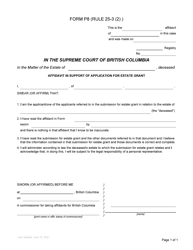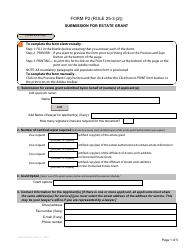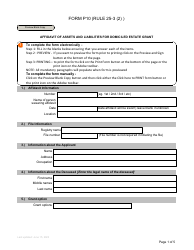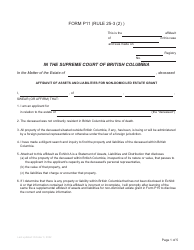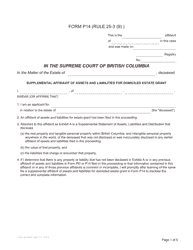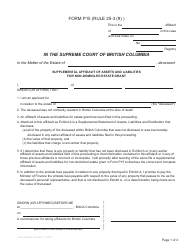Form P19 Estate Grant - British Columbia, Canada
The Form P19 Estate Grant in British Columbia, Canada is used for applying for a grant of representation in order to manage the estate of a deceased person.
The Form P19 Estate Grant in British Columbia, Canada is typically filed by the executor of the deceased person's estate.
FAQ
Q: What is Form P19 Estate Grant?
A: Form P19 Estate Grant is a legal form used in British Columbia, Canada to apply for a grant of probate or administration of an estate.
Q: Who can use Form P19 Estate Grant?
A: Form P19 Estate Grant can be used by executors, administrators, or personal representatives of an estate in British Columbia.
Q: What is the purpose of Form P19 Estate Grant?
A: The purpose of Form P19 Estate Grant is to apply for a grant of probate or administration, which gives the applicant legal authority to deal with the assets and debts of a deceased person's estate.
Q: What information is required in Form P19 Estate Grant?
A: Form P19 Estate Grant requires information about the deceased person, the applicant, the estate assets and liabilities, and the intended distribution of the estate.
Q: Are there any filing fees associated with Form P19 Estate Grant?
A: Yes, there are filing fees associated with Form P19 Estate Grant. The amount of the fees depends on the value of the estate.
Q: Do I need legal representation to complete Form P19 Estate Grant?
A: While legal representation is not required, it is recommended to seek legal advice when completing Form P19 Estate Grant to ensure the process is done correctly.
Q: What is the timeline for processing Form P19 Estate Grant?
A: The timeframe for processing Form P19 Estate Grant can vary, but it typically takes several weeks to several months.
Q: What happens after Form P19 Estate Grant is approved?
A: After Form P19 Estate Grant is approved, the applicant receives a grant of probate or administration, which allows them to handle the deceased person's assets and debts.
Q: Can Form P19 Estate Grant be contested?
A: Yes, Form P19 Estate Grant can be contested if there are valid legal grounds to do so, such as a dispute over the validity of the will or the appointment of the applicant.
